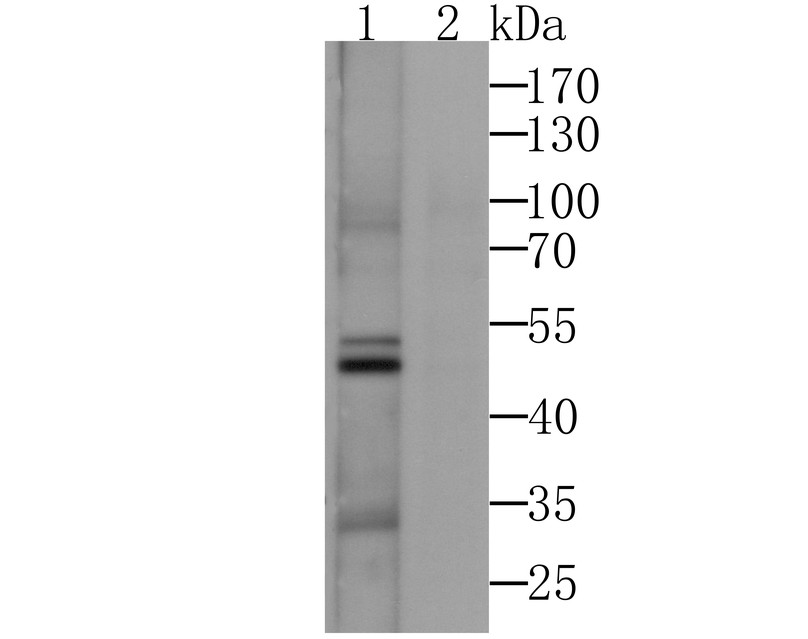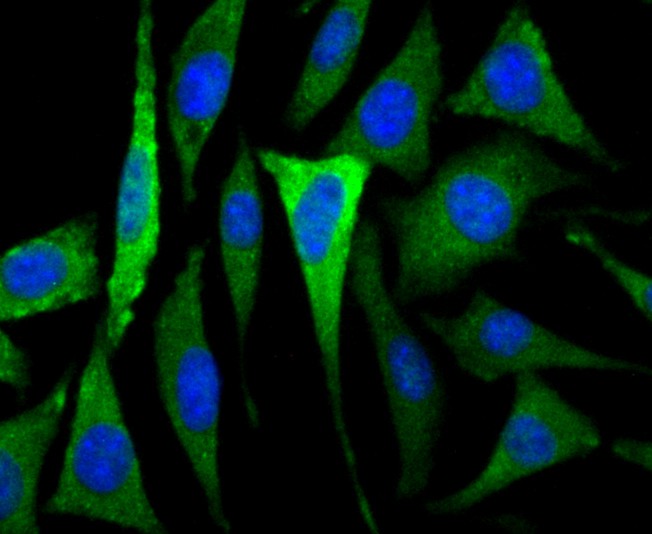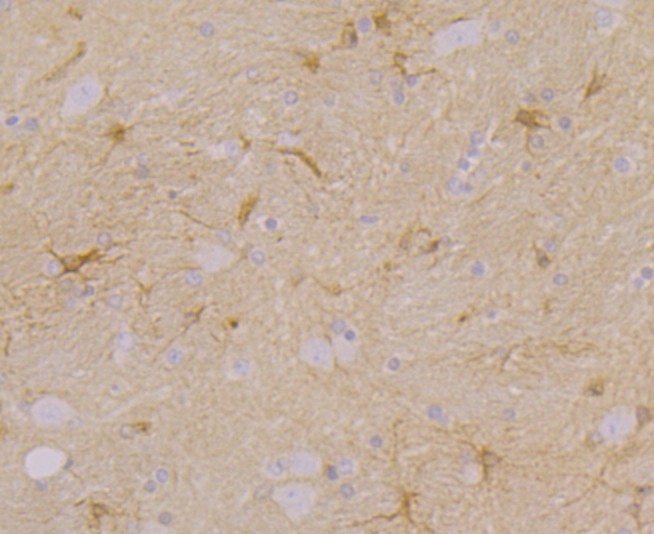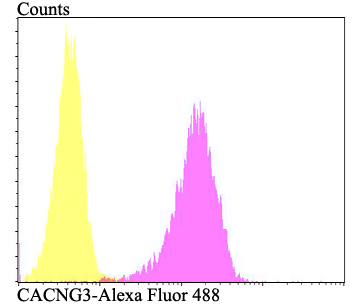-
Product Name
Anti-CACNG3 antibody
- Documents
-
Description
Rabbit polyclonal antibody to CACNG3
-
Tested applications
WB, ICC, IHC-P, FC
-
Species reactivity
Human, Rat
-
Isotype
Rabbit IgG
-
Preparation
This antigen of this antibody was synthetic peptide within rat cacng3 aa 200-250.
-
Clonality
Polyclonal
-
Formulation
Liquid, 1*PBS (pH7.4), 0.2% BSA, 50% Glycerol. Preservative: 0.05% Sodium Azide.
-
Storage instructions
Store at +4℃ after thawing. Aliquot store at -20℃. Avoid repeated freeze / thaw cycles.
-
Applications
WB: 1:500
ICC: 1:50-1:200
IHC-P: 1:50-1:200
FC: 1:50-1:100
-
Validations

Fig1: Western blot analysis of CACNG3 on SH-SY-5Y cell lysates using anti-CACNG3 antibody.; Lane 1: Anti-CACNG3 Antibody (1:500).; Lane 2: Anti-CACNG3 Antibody, pre-incubated with the immunizaiton peptide.

Fig2: ICC staining CACNG3 in SH-SY-5Y cells (green). The nuclear counter stain is DAPI (blue). Cells were fixed in paraformaldehyde, permeabilised with 0.25% Triton X100/PBS.

Fig3: Immunohistochemical analysis of paraffin-embedded rat brain tissue using anti-CACNG3 antibody. Counter stained with hematoxylin.

Fig4: Flow cytometric analysis of SH-SY-5Y cells with CACNG3 antibody at 1/100 dilution (fuchsia) compared with an unlabelled control (cells without incubation with primary antibody; yellow). Alexa Fluor 488-conjugated goat anti-rabbit IgG was used as the secondary antibody.
- Background
-
References
- Spencer KL et al. Dissection of chromosome 16p12 linkage peak suggests a possible role for CACNG3 variants in age-related macular degeneration susceptibility. Invest Ophthalmol Vis Sci. 28;52(3):1748-54 (2011).
- Everett KV et al. Linkage and association analysis of CACNG3 in childhood absence epilepsy. Eur J Hum Genet. 15(4):463-72 (2007).
Related Products / Services
Please note: All products are "FOR RESEARCH USE ONLY AND ARE NOT INTENDED FOR DIAGNOSTIC OR THERAPEUTIC USE"
